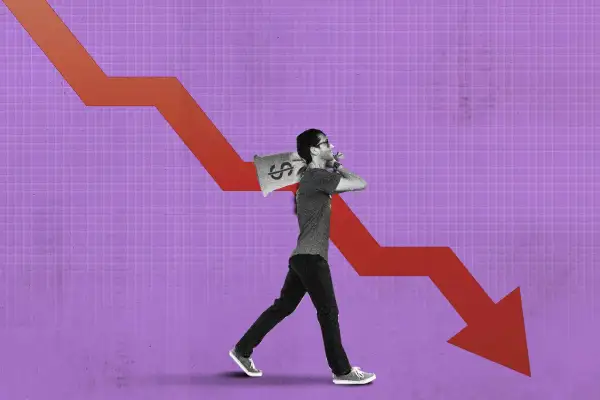Nearly Half of Americans Think We're in a Recession, and They're Saving Up to Survive It

Nearly half of Americans believe we’re already in a recession, according to a new survey, and almost as many have actively started preparing for one.
What the research says
- Research firm Morning Consult released poll results Monday showing that 46% of Americans said they think the economy is currently in a recession. Another 22% said that — while they don’t believe a recession is here already — the country will be in one within the next year.
- The survey, which included responses from more than 2,200 U.S. adults contacted in February, also found that 41% of Americans said they're changing their financial behaviors to prepare for a recession. An additional 41% told Morning Consult that they aren’t able to prepare for one actively but wish they could.
- Common steps people are taking right now to gird their finances against an economic downturn include building up their emergency savings, cutting back on spending and stockpiling food or supplies.
Keep in mind
Officially speaking, the U.S. economy is not in a recession — though there are warning signs that an economic slowdown may be on the horizon.
- What, exactly, a recession is can be hard to pin down. Though a common definition links it to two consecutive quarters of gross domestic product decline, there's actually a group of academics at the National Bureau of Economic Research formally in charge of defining when a recession begins and ends.
- And their definition of a recession is vague: "a significant decline in economic activity that is spread across the economy and that lasts more than a few months," according to the NBER website.
- Many Americans look to recent layoffs, in the tech sector especially, as evidence that a recession is coming or is perhaps already here — though the overall job market remains resilient.
- The housing market has also taken a hit, with prices falling yet affordability worsening due to skyrocketing mortgage rates.
- While these warning signs are flashing, they do not likely qualify for NBER’s definition of widespread economic decline, as they remain contained to specific sectors.
The takeaway
While many are convinced a recession is a sure thing, some economists say all is going according to plan. The Federal Reserve is raising interest rates to slow the overheated economy and curb inflation.
For example, Mark Zandi, chief economist at Moody’s Analytics, suggests that widespread perception of a looming recession might actually help the U.S. avoid one: “Pervasive pessimism” of a recession has led to decreased spending from consumers and businesses, he recently tweeted.
And that, Zandi said, could be key to getting inflation under control — thus sidestepping an official recession.
More from Money:
The 3 Best Money Moves for March
Why Millionaires Don't Have to Pay Any More Social Security Taxes This Year

